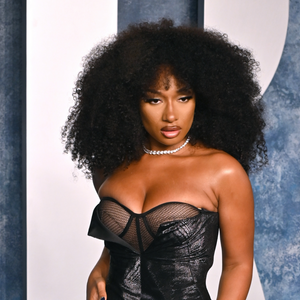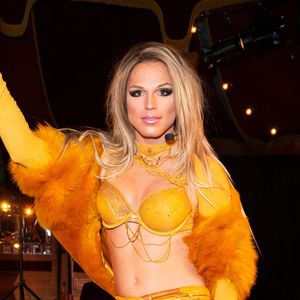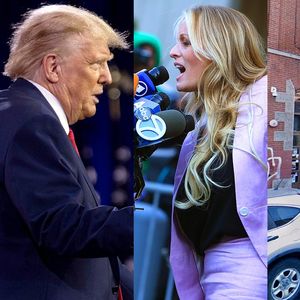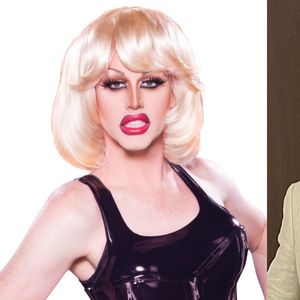For many who
lived through Vermont's not-so-civil debate making it the
first state in America to allow civil unions, the memories
remain painfully fresh: hate mail, threatening
telephone messages, tense public meetings.
This time around,
as the small northeastern state weighs whether to join
neighboring Massachusetts in legalizing same-sex marriage,
the debate is noticeably tamer with little of the
vitriol and recrimination that surrounded its
groundbreaking 2000 decision to legally recognize gay and
lesbian couples.
It is early:
Lawmakers say they are unlikely to push for a vote this year
on pending legislation that would legalize full same-sex
marriage, although a state-appointed panel has been
gathering public input and is due to report to state
lawmakers in April.
Although that
absence of an impending vote may be what is keeping things
civil, people involved in the debate have noticed a change
in atmosphere.
''It's a very
different tenor,'' said Beth Robinson, chairwoman of the
Vermont Freedom to Marry Task Force, which supports full
marriage rights for gay couples. ''People have had an
opportunity to come to terms. Vermonters have had
eight years to see the two guys next door, or the two
women down the street who have a legally recognized
relationship under the civil unions law.''
On December 20,
1999, the Vermont supreme court ruled that banning
same-sex unions was unconstitutional and ordered state
lawmakers to come up with a law accommodating them.
That triggered a yearlong battle in which a state that
prides itself on tolerance seemed to lack it.
Supporters and
opponents alike streamed into Montpelier, the capital, to
rally and lobby lawmakers.
When the law took
effect July 1, 2000, it did not quell the controversy
or the fallout. It became a central issue in that year's
elections and 17 incumbents who voted in favor lost
their seats.
''It was quite
rancorous,'' said Stephen Cable, founder of Vermont
Renewal, which opposed civil unions then and opposes gay
marriage now.
''I have a box of
hate mail you can't imagine. We got dried feces and
used condoms in the mail. We had people stalking our vice
president, who had an armed guard at her house for
three weeks, 24/7,'' Cable said.
''It was a time
unlike anything since the Vietnam War era, when you had
the sense that the whole world around you was divided,''
said David Moats, author of Civil Wars: A Battle
For Gay Marriage, a book about Vermont's civil
unions controversy.
An Associated
Press exit poll of voters that November found the state
split 49% to 49% on whether civil unions were a good idea.
Four years later, the poll asked voters to choose
between three options for recognition of same-sex
unions: full marriage, civil unions, or no
recognition. Forty percent said they supported marriage, 37%
civil unions, and 21% neither.
Other states
followed Vermont's lead. Connecticut, New Jersey, and New
Hampshire have endorsed civil unions, and California and
Washington have enacted domestic-partner laws. Only
Massachusetts permits same-sex marriage.
Last summer, the
legislature appointed an 11-member Vermont Commission on
Family Recognition and Protection to explore the idea of gay
marriage and hear how Vermonters feel about it. The
panel, which opponents say is stacked with gay
marriage supporters and have boycotted, has held seven
hearings and has three more scheduled.
The hearings have
generated plenty of input but no name-calling or
personal attacks.
James LaPierre,
who has a civil union partner and two children, saw the
contrast firsthand. He went to a 2000 meeting on civil
unions intending to get up and speak, but he was
intimidated by the atmosphere and kept quiet.
''People would
stand up and go to the microphone and there was jeering
and catcalling,'' said LaPierre, 43, a nurse from
Burlington. ''It was hateful and scary.''
Last month,
LaPierre went to a hearing by the Commission on Family
Recognition. This time the gathering was ''supportive'' and
he got up and spoke. But it had fewer people -- about
100, by his count, compared with about 500 at the 2000
event.
''Instead of a
hateful, unruly, mob-like meeting, it was civil and
organized. There was representation of the other side, but
only two or three people,'' he said.
Opponents believe
the change in tone may have more to do with their
boycott -- and the lack of impending action -- than
acceptance of gay marriage.
''If they'd
announced they were going to move on it this year and these
hearings were on a bill we intend to have a vote on this
year, you'd be seeing a much different scenario,''
said the Reverend Craig Bensen, president of Take It
To The People, which opposes same-sex marriage.
Thomas Little,
chairman of the house judiciary committee in 2000 and now
the chair of Commission on Family Recognition, acknowledges
that some gay marriage opponents are staying on the
sidelines -- for now.
''Most people
don't expect the legislature to take any action in 2008,
and opponents, therefore, are keeping their powder dry until
some point in the future, when it's more likely to
become a legislative debate,'' he said. (John Curran,
AP)




















































































